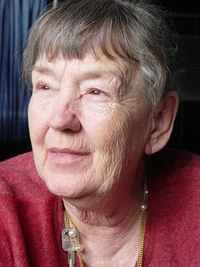Independent Guide to Care in North Wales
- Home
- Add Listing Care Homes
- Care Homes in Anglesey
- Care Homes in Conwy
- Care Homes in Denbighshire
- Care Homes in Flintshire
- Care Homes in Gwynedd
- Care Homes in Wrexham
- EMI - EMH Care Home Care
- Home Care in Anglesey
- Home Care in Conwy
- Home Care in Denbighshire
- Home Care in Flintshire
- Home Care in Gwynedd
- Home Care in Wrexham
- Other Products and Services
- Products and Services
- Rehab Services
- Links
- Blog
Quick Search
 Dementia is a growing problem for the NHS as the condition becomes more apparent due to the UK's aging population. While it is an upsetting, difficult and uncomfortable condition, unique to each patient, certain similarities in the physical signs in dementia-related disease have been noted. The biggest problem with managing dementia sufferers is the patient's marked proneness to their sleep-wake cycles falling out of sync with other bodily rhythms, which leads to tendencies of patients falling asleep in the day and suffering increased wakefulness during the night hours. Some patients are reported to spend as much as 40% of the night awake, creating an increased risk of falls and injury... and not being a very pleasant experience either. Clinical research has shown that light can help correct the rest/activity cycles of dementia patients - with new technology from the lighting industry hoping to achieve this with dimmable LED strip lights which can be adjustable from 3000 - 6500K at the touch of a button. Most dementia sufferers benefit from much brighter than usual lighting to counteract the loss of visual acuity that occurs as part of the aging process. Furthermore, Bright light therapy has shown to yield a variety of benefits: improved night time sleep, increased daytime wakefulness, reduced evening agitation and better rest/activity patterns overall for a happier life to the patient – the end aim of any care provider. |
Archives
September 2023
August 2023
July 2023
June 2023
May 2023
March 2023
February 2023
December 2022
November 2022
August 2022
July 2022
May 2022
April 2022
September 2021
December 2020
November 2020
October 2020
September 2020
May 2020
May 2018
September 2017
August 2017
June 2017
May 2017
March 2017
January 2017
September 2016
April 2016
March 2016
September 2015
June 2015
September 2014
February 2014
December 2013
August 2013
October 2012
June 2012
Other Sites In The "North West and Wales" Network
North Wales Online Community
Chartered Accountants North West and Wales

